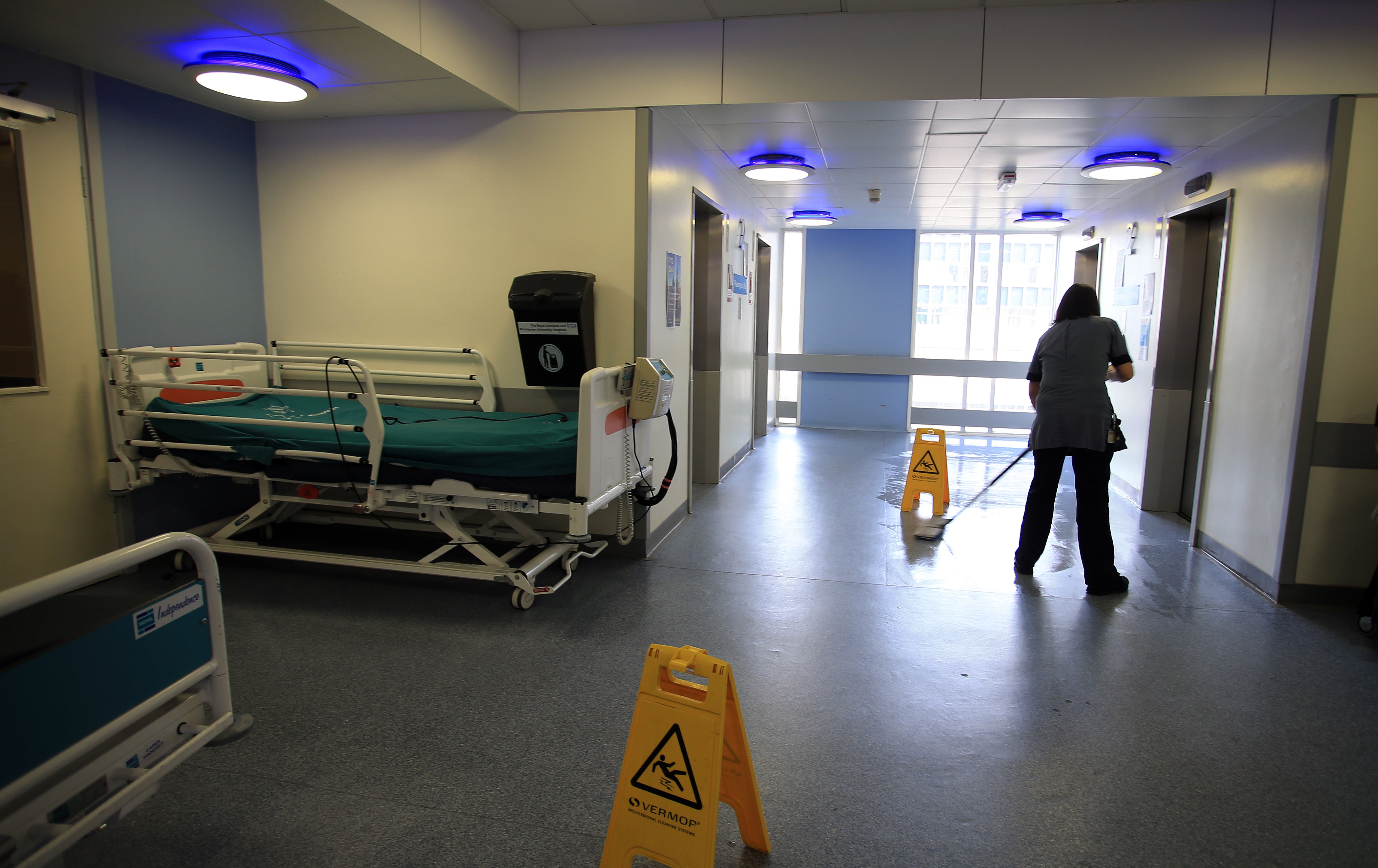Exhausted nursing staff wondering ‘what is coming’ as Covid cases rise
The Royal College of Nursing has said the coming weeks paint a very bleak picture as coronavirus cases continue to increase

Your support helps us to tell the story
From reproductive rights to climate change to Big Tech, The Independent is on the ground when the story is developing. Whether it's investigating the financials of Elon Musk's pro-Trump PAC or producing our latest documentary, 'The A Word', which shines a light on the American women fighting for reproductive rights, we know how important it is to parse out the facts from the messaging.
At such a critical moment in US history, we need reporters on the ground. Your donation allows us to keep sending journalists to speak to both sides of the story.
The Independent is trusted by Americans across the entire political spectrum. And unlike many other quality news outlets, we choose not to lock Americans out of our reporting and analysis with paywalls. We believe quality journalism should be available to everyone, paid for by those who can afford it.
Your support makes all the difference.The coming weeks “paint a very bleak picture” for exhausted nursing staff as coronavirus infections increase, a union has said.
The Royal College of Nursing said nurses are “already physically and emotionally exhausted” by the pandemic but staff shortages due to Covid-19 mean they are now wondering “What is coming?”
London’s biggest health trust, Barts Health NHS Trust also warned that some of its operations may need to be cancelled in the new year due to rising coronavirus cases and staff absences.
A spokesman for the trust said services are running as normal, but a contingency plan has been put in place in case staff need to be redeployed.
Alistair Chesser, group chief medical officer, said: “Our hospitals are currently running as usual, but we have plans in place to redeploy staff in the coming weeks, should we need to.
“We are only able to respond to this next challenge because of our dedicated staff who are prepared to do all they can to care for our patients, with many taking on extra shifts.”
According to NHS data, staff absences at NHS acute trusts due to Covid or self-isolation increased by 18% from 11,375 on November 29 to 13,468 on December 9. The figures then fell back to 12,240 on December 12 – lower than the absences at the start of the month.
The picture looks bleak across London, where Omicron cases continue to rise. On December 12, staff absences had risen by 31% from the start of the month to 1,540 from 1,174.
Due to the most recent data not yet being available, the statistics published by the NHS do not yet show the full impact of the Omicron variant on staffing.
However, NHS providers say hospital trusts in the capital saw a rise of 140% in staff absences between December 12 and 16.
On Monday, a further 91,743 lab-confirmed Covid-19 cases were recorded in the UK, and another 44 people had died within 28 days of testing positive for Covid-19.
The Royal College of Nursing (RCN) said there were not enough staff to deliver what was needed before the pandemic, with rising infections causing more concern.
Patricia Marquis, England director at the RCN, said: “The next few weeks paint a very bleak picture for nursing staff who are already physically and emotionally exhausted by what has happened throughout the pandemic.
“In many places they are already starting to go off sick themselves with Covid-19, but also mental and physical exhaustion.
“Before the pandemic, there weren’t enough staff to deliver what was needed. Staff are now looking forward thinking ‘Oh my goodness, what is coming?’”
Chief executive of NHS Providers Chris Hopson said staff absences are expected to rise along with pressure on the NHS.
He said: “Trust leaders are concerned about the weeks ahead, as Covid-19 cases reach a record high, due to the higher transmissibility of Omicron.
“On top of the usual staff shortages, many NHS staff are now absent from work due to either sickness or self-isolation. In London, Covid-related NHS absences increased by 140% between 12 and 16 December.
“This is expected to rise in the weeks ahead, with a few trusts in the capital already describing the real pressure this is adding to the service.
“The impact on the workloads of remaining staff – who are already working incredibly hard given the huge demands on the service – is a major concern.
“Unlike last January, trusts are not only dealing with Covid-19 care, but also seeing real pressure on emergency care, tackling a significant backlog of routine care, and accelerating and expanding the vaccination campaign.
“Any decision to stand down or reduce services will only be taken as a last resort and will be based on clinical risk to ensure the best possible care for everyone.”
NHS Employers said if cases continue to rise at a rapid rate, widescale disruption is inevitable.
Chief executive Danny Mortimer said: “Our members are working hard to minimise disruption to patient care and they are enormously grateful to the countless staff who are altering their plans to work extra hours and shifts, as well as helping out with other teams, including those delivering vaccinations.
“The NHS will continue to prioritise essential care and it is vaccinating at record levels against coronavirus, but if cases continue to rise at this rapid rate, sadly widescale disruption is inevitable.
“We expect the Government to act quickly in response to the data and modelling it has and for the public to continue to do everything they can to keep transmission down.
“This isn’t just about protecting the NHS – it’s about protecting ourselves, our friends and family and each other more generally.”